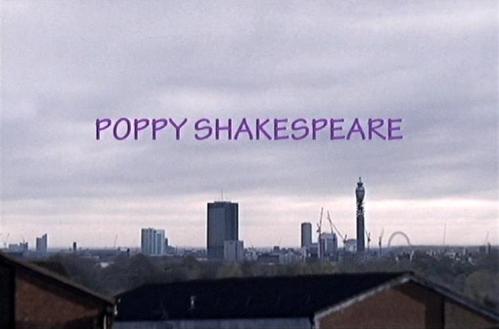
POPPY SHAKESPEARE
Anna Maxwell Martin / Naiomie Harris / Jonathan Cullan / Adrian Scarborough / Claire Benedict / Cathy Murphy / Nicholas Beveney / Marie Critchley / Darrell D’Silva / Janine Birkett / Michelle Dockery / Based on the novel ‘Poppy Shakespeare’ by Clare Allan / Screenplay Sarah Williams / Art Direction Grant Armstrong / Cinematography Danny Cohen / Directed Benjamin Ross
‘Since prisons and madhouses exist, why somebody is bound to sit in them.’
ANTON CHEKHOV
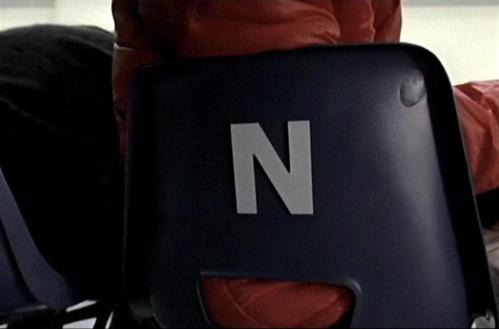

Channel 4’s pledge to make modern, bold programming is exemplified in it’s adaptation of Clare Allan’s lyrical novel ‘Poppy Shakespeare’. While the BBC single-handedly keeps the period drama alive, Channel 4 feeds vital blood into the modern British film industry, putting some of that reality show cash to good use. Anna Maxwell Martin (‘Bleak House’ and star of the West End hit ‘Caberet’) plays ‘N’, the nameless veteran of a lifetime in mental healthcare, outpatient from the Dorothy Fish hospital. One of a number of fellow patients battling with the realisation that cutbacks and privatisation will gradually see each of them one by one cut loose to the despair of their own recogniscence. Despite her sorrowful demeaner (looking remarkably like Kenny from South Park in her highly zipped red jacket) and tragic childhood, it becomes gradually clear that ‘N’ is by far the sanest ‘dribbler’ on the block, Institutionalised yet savvy to how the system works.
Enter Poppy Shakespeare, played by Naiomie Harris (you may remember her Jamaican accented harpy from Pirates of the Caribbean), admitted to the Dorothy Fish against her will.. aggressive, but seemingly quite sane. ‘N’ is given the job of showing Poppy the ropes, but the two quickly latch onto eachother in a rather intense relationship that sees a reversal of fortunes, personalities, and perceptions of reality.
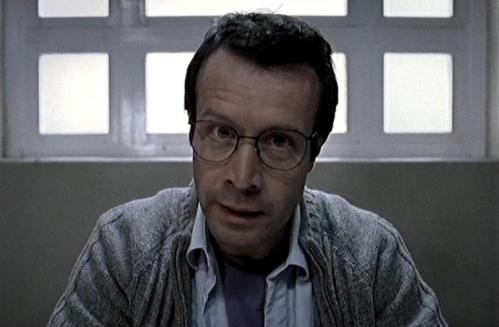
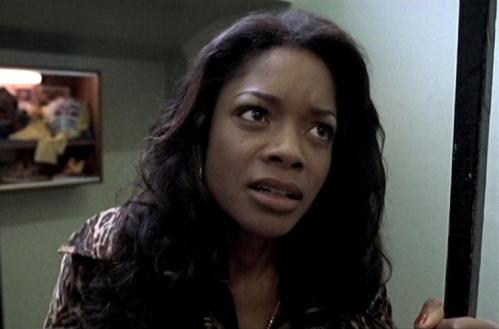

Anna Maxwell Martin really is mezmerizing to watch (both here and in the achingly sad ‘Bleak House’), the only actor I can think of to compare her with is Timothy Spall, or perhaps Ralph Fiennes performance in the David Cronenberg film ‘Spider’..except Anna manages to exude far more natural charm. Although Anna dominates each and every scene, Naiome Harris does an admirable job, and there’s a wonderful collection of characters in the supporting cast. Adrian Scarborough (‘Gavin & Stacey’) heads up the ministry of madness in the guise of ‘Middle class Michael’, along with an assortment of notables including Cathy Murphy (‘Casualty 1906’) and a wonderfully sincere Claire Benedict (I seem to remember seeing her in ‘Grange Hill’ as one of the teachers?) amongst others. There’s a lovely little scene in a trapped lift with Nicholas Woodeson (Posca from ‘Rome’) delivering an eerie little speech, blurring the already smudged line between sanity & madness further. Darrell D’Silva’s state legitimized drug dealer dispenses his wares Trainspotting style with a dash of market salesmanship. There’s more than a hint of 60’s modernist nightmare ‘The Prisoner’ ( ‘but with N’ reversing No.6’s fight, in a bid to stay locked in) inmates reduced to the identity of their lettered chairs, and the shifting goalposts of control. ‘Along with Catch-22 twisted logic – ‘I know it sounds insane Poppy, but the reality is that you must be considered mad to be eligable for Mad-money, and you need the Mad-money to pay the legal fees involved in proving yourself sane.’ Edging into the territory of Terry Gilliam’s ‘surrealist nightmare ‘Brazil’.
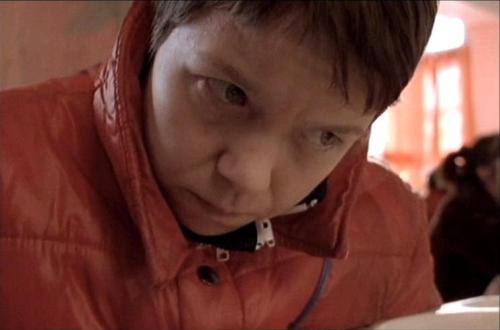
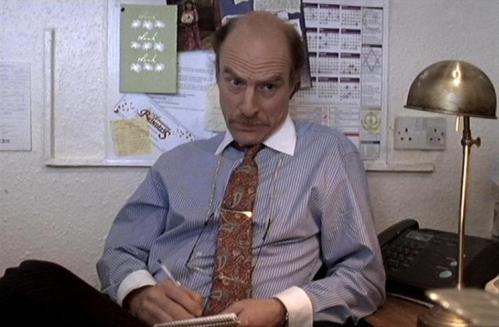
However good the acting in these pieces, there’s ever the danger that the depressive air surrounding issues of mental health will put most people off, but I really don’t think that’s the case here. There’s enough black comedy and stylish flourishes to the art direction to draw us in, and the charming way in which ‘N’ asides to the camera and looms close to the lens holds our fixed attention to the last. On top of this we’re charmed by the catchy theme music with it’s whistles & claps (‘The Turtle’ bonobo mix by Pilote, reminding me a little of ‘something from Luc Besson’s The Big Blue’ soundtrack) acting as an effective lure in adverts the week before Poppy aired in the UK. Hunting down a copy on DVD will involve finding the Australian edition, since Channel 4 don’t seem in much of a hurry to give Poppy a flag waving release in the UK. A shame really, since it’s a remarkable piece that well deserves a wider audience.
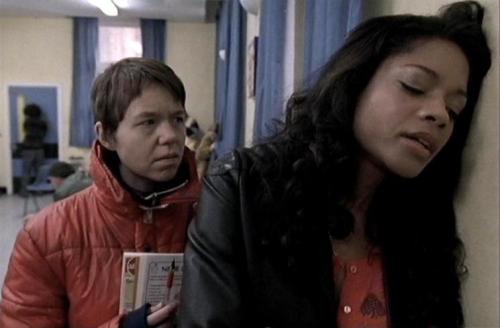
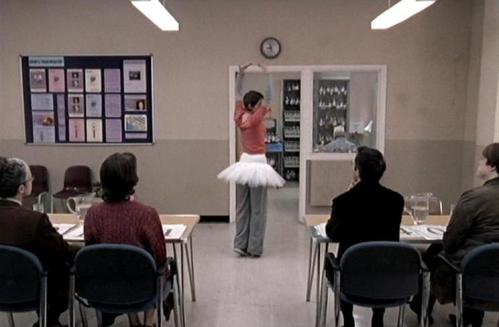
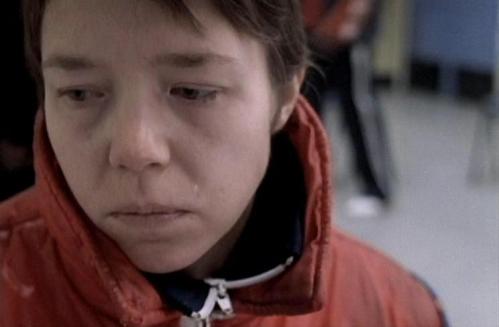
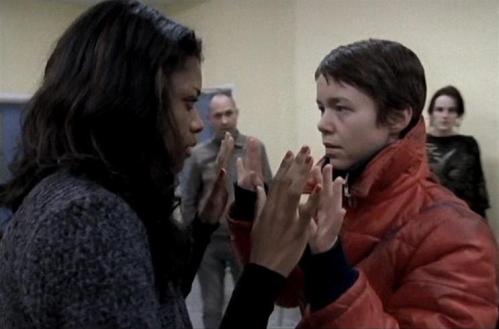
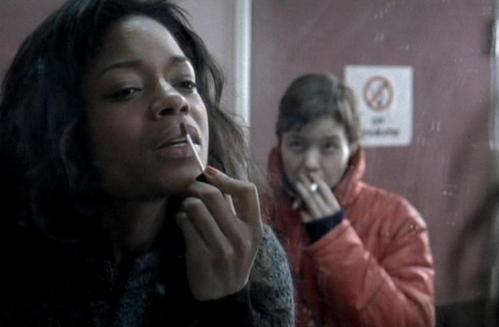
‘I thought you were..a nurse..Look, that thing I just said about not being a nutter, well..I’m sorry, I didn’t realise. I ain’t got a problem with mental illness..it’s just there’s nothing the matter with me.’
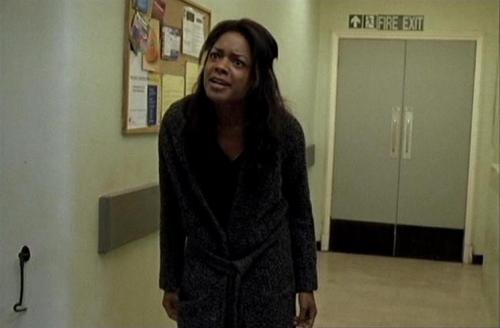
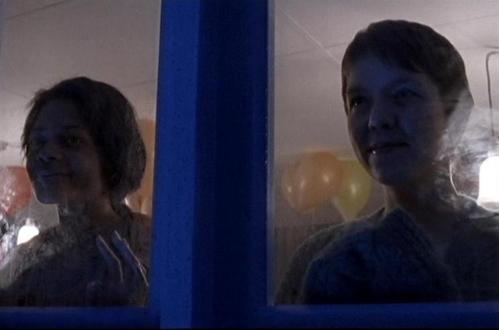

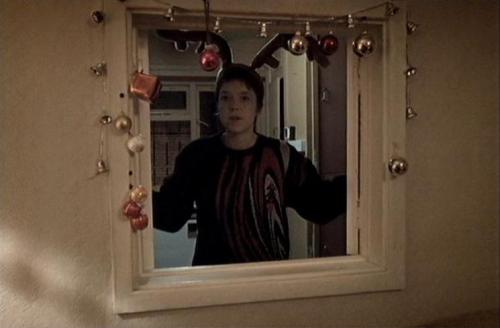
‘Just like that..I can’t believe it..she wasn’t normal last night. God knows she was high as the sky last night! How could she be normal all of a sudden?’
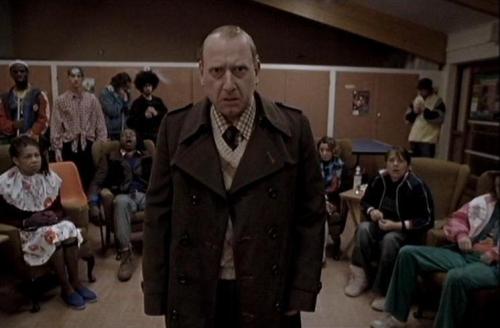
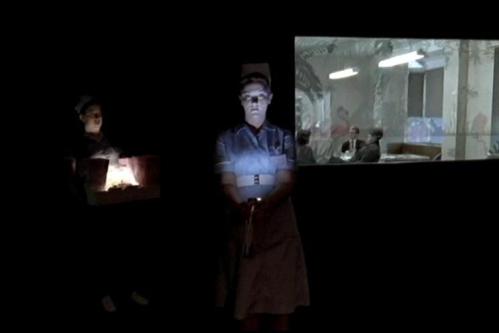
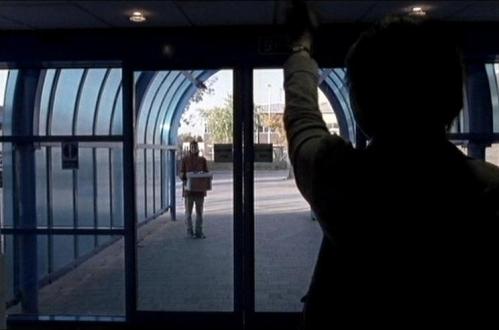
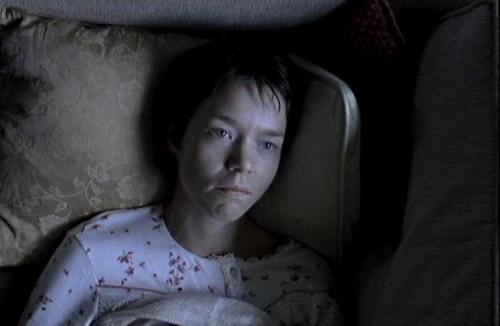

‘I wouldn’t worry about that. You must be mad, or else you wouldn’t be here.’
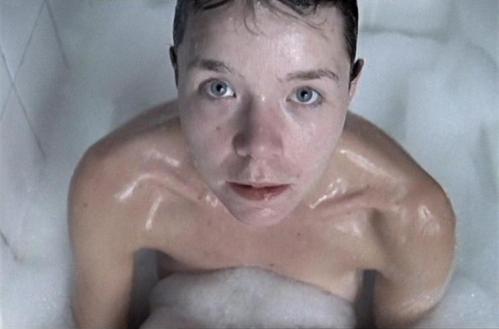
POPPY SHAKESPEARE AUTHOR CLARE ALLAN
Clare Allan used her 10-year stint in the mental health system as inspiration for her acclaimed novel Poppy Shakespeare, which is now a Channel 4 feature film. She speaks to Kate Weinberg about her journey from inpatient to feted writer.
“I think people often feel a bit short-changed when they meet me,” says novelist and former psychiatric patient Clare Allan. “That I’m not doing the shuffling, dribbling thing. Or wielding an axe.”
She recounts the story of her first ever interview with a publisher. “This woman was looking a bit cheated by the rather-too-sane conversation we were having. Then I leant back to emphasise a point and fell off my chair. That seemed to cheer her up enormously.” We’ve just ordered a Salad Nicoise in Cecconi’s, an Italian restaurant in the heart of Mayfair frequented by Saville Row businessmen and the I’m-so-big-in-media-I-wear-jeans-crowd. I tell her that the lack of axe is not a terrible let down and that the waiters are probably quite pleased about the dribbling. But she’s right. At six foot, with short, dark hair and black velvet trousers she is more Geena Davis in The Long Kiss Goodnight than Kathy Bates in Misery. Not being mad enough was what Clare remembers worrying about on the bus on the way to her first psychiatric hospital.
“I was terrified they wouldn’t let me in, because I knew how much I needed the help. Like a lot of people I relied on stereotypes. You know, straight-jacket, nervous tic, boiling rabbits….” She dispatches some anchovies onto her side plate and looks up, deadpan. “I did lose a rabbit when I was a kid. But I’m pretty sure he died of old age.” Hearing Clare talk about her experiences is a master class in trenches humour. She recalls one of her first days sitting in the common room of a psychiatric hospital in Archway, where they all chained smoked and drank endless cups of tea. “A patient was talking about the time she drove to Beachy Head to commit suicide. “Only she had to turn back because she couldn’t find anywhere to park the car.”
This marked the beginning of a ten-year stint in the mental health system. Shunted around various psychiatric hospitals in North London, Clare was variously diagnosed with paranoid psychosis, psychotic depression, developing schizophrenia, manic depression, major psychotic disorder and borderline personality – a list which she claims was “about as much use as covering a parcel with ‘fragile’ stickers.” So did they put her on medication? Clare gives me a look like an M & S employee who’s been asked whether they stock underpants. “Anti-psychotics, mood-stabilisers, sleeping tablets,” Clare checks the list off on her fingers. “Anti-depressants, tranquilisers… Oh, and did I mention, medication to counteract the effects of other medication.” Having spent five years in and out of “the system” Clare heard about the Creative Writing course at UEA, then taught by Poet Laureate Andrew Motion. She faxed an application through from the ward, making sure she blacked out the top of the headed paper so “no-one thought she was applying from the Cuckoo’s Nest.”
A few weeks later she was called up for interview. Glancing at her then rebelliously close-cropped hair, nose stud and eyebrow ring, Motion looked down at his notes (which she later surmised must have been headed “Allan, Clare”), before clearing his throat and venturing, “Alan?”
“A look of what I can only describe as pure panic shot across his face when he realised he’s got it wrong,” says Clare. “I could practically hear the sound of the Poet Laureate’s toes curling.” Allan, Clare got a place on the course. It was here she started writing Poppy Shakespeare, a novel that was highly critically acclaimed and has now been made into a Channel 4 feature film, which screened on Monday night. A take-no-patients satire of mental health treatment set on the fictional Dorothy Fish day hospital in North London, Poppy Shakespeare manages to evoke the stark realities of being mentally ill, while still being extremely funny. So how did she pull that one off?
“It was just a case of doing the patients justice. The longer I stayed there the more I realised how people use humour to cope with completely desperate situations,” says Clare, her face serious for once. Although Poppy Shakespeare has been a definite literary success, appearing on the short and long lists of major literary awards including the Orange prize, the subject matter has provoked some fierce debate. “Not surprisingly,” shrugs Clare. “It’s an issue people feel very strongly about.” In such emotive territory, it remains to be seen how people will react to rather more straight-faced approach of the Channel 4 film, in which Clare makes an appearance near the end as the grim-faced Dr. Clooty, wrestling the narrator, played by Anna Maxwell-Martin, to the floor. So what if the film provokes further controversy? We have skipped desert and Clare is leaning back in the apple-green and black chairs, sipping a double espresso. “Winston Churchill, who suffered from severe depression had a maxim which I find helpful in most situations,” she says with a grin. “Keep buggering on.”
THE TELEGRAPH
ANNA MAXWELL MARTIN



